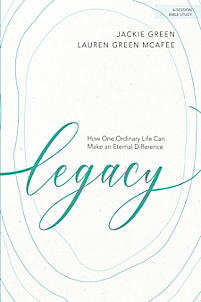Go back in time almost five hundred years before the birth of Christ and you’ll find a woman who struggled between fear and courage. The danger was real and the stakes were high. But to grasp the full fear she faced, you have to begin with her backstory. It started in 483 BC, over one hundred years after the Jews were taken into Babylonian captivity. One group of exiles had returned to Jerusalem, but more remained even after Babylon fell in 539 BC.
Some Jews wound up in Persia, which rose as the dominant kingdom in the Middle East after Babylon’s fall. There, Xerxes the Great (also known as King Ahasuerus) ruled from 486 to 465 BC. Arrogant and impulsive, the king forever banished his queen, Vashti, from his presence when she refused his request to appear before his guests at a banquet to display her beauty (Esther 1). The king searched for Vashti’s replacement from among the most beautiful girls in his kingdom and chose Esther as his new queen (Esther 2). What Esther kept secret was that she was a Jewish exile and orphan, raised by her cousin Mordecai.
One day, a conflict arose between Mordecai and Haman. Haman was a nobleman the king had honored who expected all the royal officials at the king’s gate to kneel before him, and Mordecai was the only official who refused. Learning that Mordecai was a Jew, Haman schemed to kill not only Mordecai but all the Jews in the kingdom (Esther 3). He convinced the king to issue an edict that on a given date about a year in the future, all Jewish men, women, and children in the kingdom were to be killed (Esther 4).
Mordecai knew Esther held a place of influence before the king and he wanted her to leverage that influence to save her people. But Esther knew it wasn’t as simple as strolling into the throne room and making a request. Approaching the king without being summoned was likely signing her own death warrant.
Fear initially kept Esther from taking the necessary steps to help her people. At this point, she put preserving her own life above saving her fellow countrymen.
Esther wasn’t just being a drama queen. Her life truly would be in jeopardy if she approached the king at her own initiative. And his reputation as a despot not to be crossed was well established. So her fear was genuine and valid. The worst possible scenario was whispering in her ear, and it was hard to ignore.
When you know God has called you to a purpose, you can step into that role — no matter how frightening — because you are confident that God is in control. Fear may not disappear, but that’s when courage becomes stronger than fear.
Jackie Green and Lauren Green McAfee
No doubt, you’ve heard the voice of fear. It says the task in front of you is impossible. It says you’re not smart enough for your job, and soon everyone is going to discover how incapable you really are. It tells you your boss is going to fire you or your husband is going to leave you. When you should be sleeping, fear reminds you of your manager who intimidates you or the bills you can’t pay. And when you find yourself living the day-after-day struggle of loving a prodigal child or fighting cancer or caring for an aging parent, fear greets you every morning with the unwelcome forecast that today will be worse than yesterday, and things won’t get better anytime soon.
Fear plays a broken record in your mind of all the worst possible outcomes. Fear takes your emotions hostage. It sabotages your body with sweaty palms, a racing heart, trembling limbs, and a gnawing in your gut. If you listen to fear, it will tell you to run when you should take a stand. It will urge you to keep quiet when you should speak up. Fear will prompt you to quit when you should stay, and linger when you should leave. It’s no wonder the Bible addresses the topic of fear so much. Over three hundred times God commanded us in so many words to stop being afraid!
When you know God has called you to a purpose, you can step into that role — no matter how frightening — because you are confident that God is in control. Fear may not disappear, but that’s when courage becomes stronger than fear.
Courage takes action to do the right thing without always having the assurance that everything will turn out OK. And honestly, things don’t always turn out OK. Sometimes the courageous suffer, hurt, or lose. Sometimes they die in the battle. No person better exemplifies courage than Jesus Christ, who, knowing the agony that lay ahead, steadfastly pursued God’s purpose for Him to die for the sins of the world. Jesus took the path of courage to meet our dire need, notwithstanding the personal risk or cost to Himself.
The legacy of courage you leave to someone who follows in your path might begin the day you stand up to do the right thing, or the day you walk away from the wrong thing. If you’re not currently facing such a fearful situation, at some point you will. Don’t let fear win the day. Don’t let Satan use his favorite weapon to paralyze you. Rather, listen to the voice of the Father saying, “Take heart. Fear not. Be strong and courageous.” Trust Him and move forward.
Excerpted from Legacy by Jackie Green and Lauren Green McAfee. Published by Lifeway Press®. © 2019. Used by permission.
Do you want to pass down something of worth? Do you want your influence to last? Do you want your life to matter in the future?
We all want to be women of legacy, but how do we begin?
In Legacy, a 6-session study, examine the character and actions of women in Scripture—Esther, Mary Magdalene, Ruth, Deborah, the woman at the well, and more—to inspire and challenge you to leave a gospel-centered legacy.
Legacy, a 6-session Bible study by Jackie Green and Lauren Green McAfee, examine the character and actions of women in scripture to motivate you to live in a way that leaves a legacy for others.

